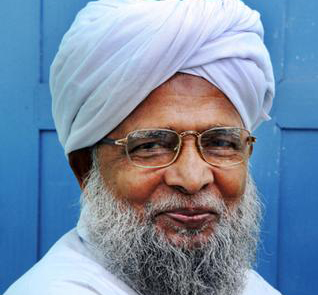Malappuram, Feb 19: Noted Shariath scholar and Samastha Kerala Jamiyyathul Ulama general secretary Cherusseri Zainuddin Musliar, 79, died at a private hospital in Kozhikode on Thursday.
 He was buried at Darul Huda Islamic University complex, Chemmad, where he had taught Shariat laws for 25 years. Thousands of people from different walks of life paid tributes to him. His body was brought first to his home at Kondotty and later to Darul Huda Islamic University, Chemmad. Senior religious leaders led the funeral prayers held at every 30 minutes.
He was buried at Darul Huda Islamic University complex, Chemmad, where he had taught Shariat laws for 25 years. Thousands of people from different walks of life paid tributes to him. His body was brought first to his home at Kondotty and later to Darul Huda Islamic University, Chemmad. Senior religious leaders led the funeral prayers held at every 30 minutes.
Zainuddin Musliar was the general secretary of the Samastha, the State’s largest Muslim body, since the death of E.K. Aboobacker Musliar in 1996. He was Pro-Chancellor of Darul Huda since it was upgraded as a university.
He was elected to Samastha Mushawara, the supreme scholarly body of the Samastha Kerala Jamiyyathul Ulama, in 1980. He was also the Fatwa committee chairman of the Samastha.
Among those who paid tributes to Zainuddin Musliar were Samastha treasurer Sayed Jifri Muthukoya Thangal, Alikutty Musliar, Haj Committee chairman T.M. Bapu Musliar, Sayed Munawwarali Shihab Thangal, Kozhikode Kazi Sayed Mohammed Koya Jamalullaili, Darul Huda Vice Chancellor Bahauddin Nadvi, industrialist M.A. Yusufali, M.I. Shanavas, MP, District Panchayat president A.P. Unnikrishnan, Minority Commission chairman A. Veerankutty, scholars Najeeb Moulavi, C.P. Umer Sullami, E.K. Ahamed Kutty, and Shaikh Mohammed Karakunnu.
He is survived by four children.




Comments
Inna lillahi va Inna Ilehi Rajioon, we lost a great scholar who spend his entire life to preach and teach islam.
Add new comment